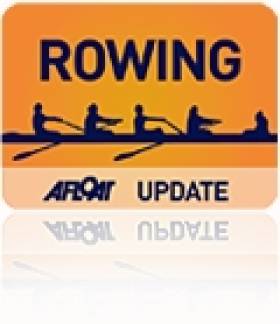Displaying items by tag: FEXCO
#Rowing: Ireland rower Monika Dukarska will be sponsored by foreign exchange specialist FEXCO this season as she and rowing partner Leonora Kennedy target qualification for the Ireland pair for the Olympic Games next year. FEXCO is a multinational finance and business solutions provider with operations in 28 countries. Its head office is in Killorglin in Kerry.
The Ireland crew of Dukarska and Kennedy will qualify the pair for Rio 2016 if they finish in the top 11 at the World Rowing Championships in Aiguebelette in France in September.
Dukarska, who is 24, started rowing at the Killorglin Rowing Club shortly after moving to Ireland from Poland when she was 16.
Shane Kavanagh, the group marketing director of FEXCO, said: “We are delighted to be working with Monika during her training for the Olympics, and it would be great to see a women’s pair qualify and make Irish history.
“Monika is an extremely talented athlete, with an incredible amount of drive and ambition. This is clear through her dedication to rowing throughout her school years, as well as receiving a first class bachelors and masters degree, while competing at a professional level. We look forward to supporting Monika on the road to Rio.”
Dukarska said: “It’s great to have FEXCO behind me during the Rio qualifying rounds.
“Our success at the Memorial Paolo d’Aloja Regatta was a great start to the season. Despite being my first international regatta in the women’s pair event, my partner Leonora Kennedy and I managed to take home the gold in both races. We had a good result last week in Poznan finishing ninth in the European Championships. I’m glad to be home in Ireland now and training harder than ever for September’s qualifier.”






























































